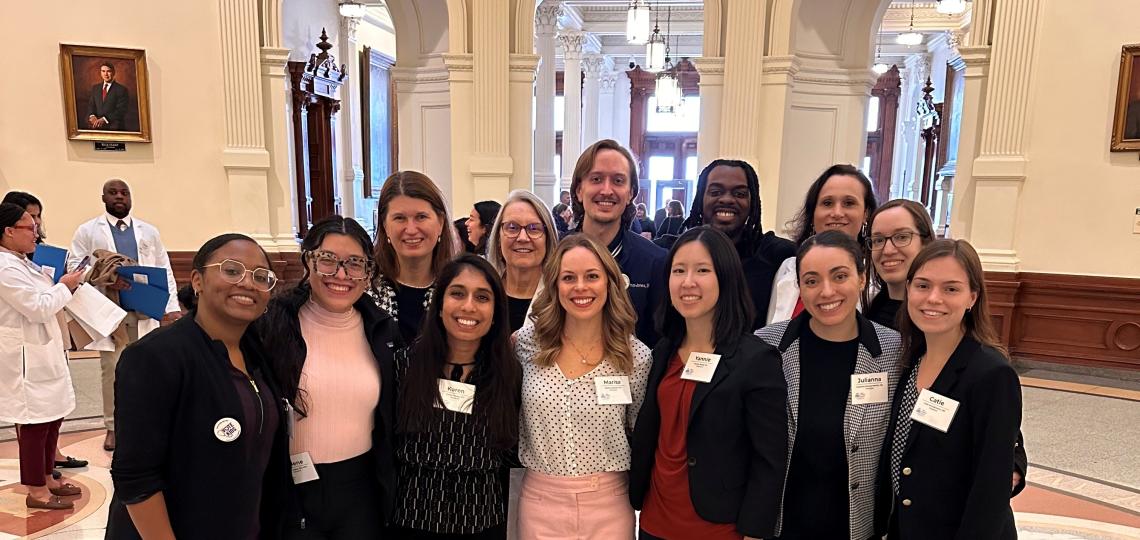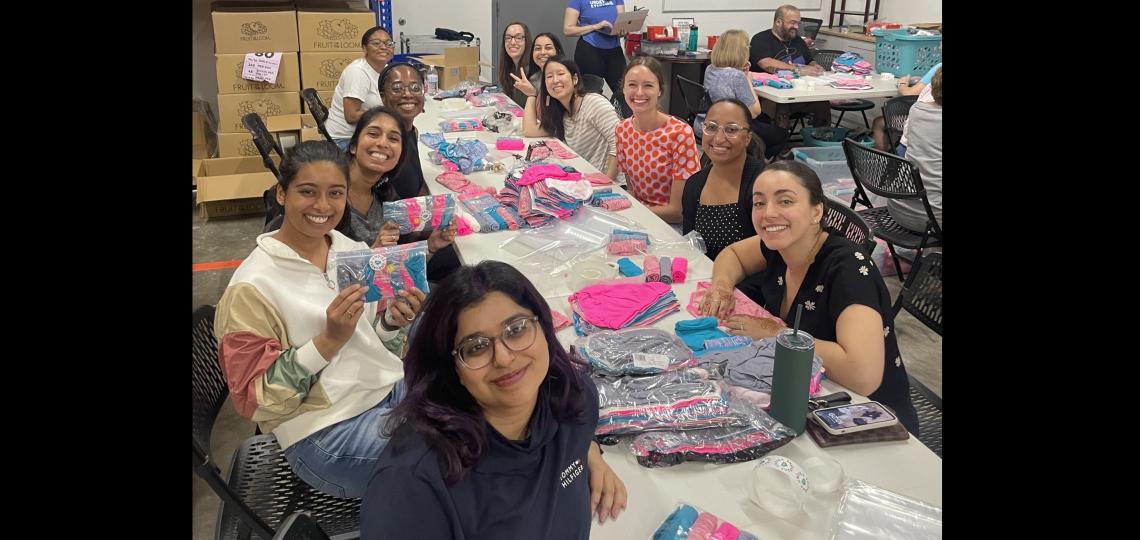
The curriculum for the Primary Care L.E.A.D. Program is embedded in the Baylor College of Medicine categorical training program. The program includes a different sequence of rotations and a specialized curriculum that focuses on training leaders interested in caring for vulnerable and underserved populations. The program meets all the ACMGE requirements for pediatric residency program.
Specialized Primary Care Curriculum includes:
- Increased primary care exposure each year of training and an emphasis on outpatient specialty care
- Required rotations covering the three core areas for primary care of underserved populations: Community Collaborations, Advocacy and Public Policy, and Public Health Initiatives
- Rotations working with refugee and immigrant populations, the Navajo Indian reservation or Sub-Saharan Africa
- Training on the primary care management of common mental health conditions in children and adolescents
- Enhanced experiences in working with patients with complex, chronic or special health care needs, their families, and the health care system
- Evening seminars focused on areas essential for caring for the underserved and vulnerable populations, such as health disparities, healthcare systems, community partnerships, legislative advocacy, and leadership
- Training in the use of narrative medicine to foster understanding and empathy in patient encounters
- Partnerships with faculty and organizations dedicated to underserved and vulnerable populations

Supporting our Community
Houston is the fourth largest city in the United States as well as one of the most ethnically and culturally diverse cities. Unfortunately, 35 percent of Houston's children live below the federal poverty level. Vulnerable populations are disproportionately affected by healthcare gaps. Often, these groups struggle the most navigating the healthcare systems and consequently suffer from preventable chronic diseases and poor health outcomes.
The mission of the Primary Care L.E.A.D. Residency Program is to narrow healthcare disparities among at risk children through community collaborations, advocacy, and quality primary care. Our program takes a multifaceted approach to tackle healthcare gaps. Residents will have the opportunity to train at several community- based organizations and treat a diverse patient population. Below are examples of the various training sites residents will experience during their residency.
Our Community
| Community Support | Delivery |
| Texas Children’s Office of Community Benefits | Texas Children’s Community Benefit program comprises strategically focused initiatives and services designed to meet the needs of our growing, diverse community. |
| Texas Children’s Hospital Center for Child Health Policy and Advocacy | The Center for Child Health Policy and Advocacy at Texas Children’s Hospital advances policy and advocacy strategies to impact legislative and regulatory action on the behalf of vulnerable children in the areas of patient care, education, and research. |
| Texas Children’s Hospital Office of Government Relations | Texas Children’s Government Relations Department actively advocates for increased access to public programs designed to serve children and their families. The department strives to increase awareness of issues that shape public policy related to children’s health. |
| Children at Risk | Children at Risk is a non-partisan research and advocacy nonprofit dedicated to understanding and addressing the root causes of child poverty and inequality. |
| Doctors for Change | Doctors for Change is a nonprofit organization that champions health for all Houstonians and Texans through research, education, collaboration, and advocacy. |
| Harris Health System | Harris Health System is a fully integrated healthcare system that cares for all residents of Harris County, Texas. |
| Texas Children’s Community Cares Program | Texas Children’s Pediatrics Community Cares Program provides trusted, high-quality pediatric medical services for children who otherwise would seek care from emergency rooms or possibly go without care or treatment due to low family incomes and/or lack of health insurance. |
| Public Health Pediatrics | The BCM Section of Public Health Pediatrics section has two components – child abuse pediatrics and the Center for the Study of Childhood Adversity and Resilience (CARE). Both components work together to engage the community around perceived risk factors and improve the trajectory for children of abuse and neglect. |








